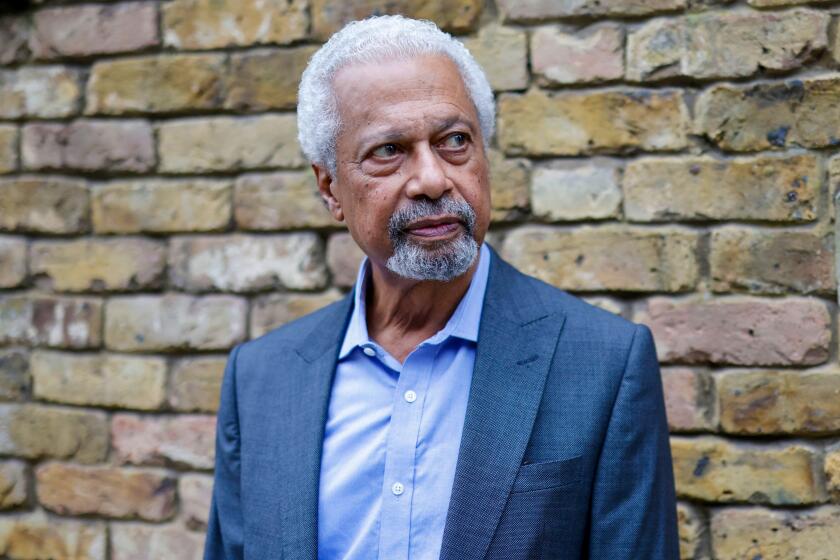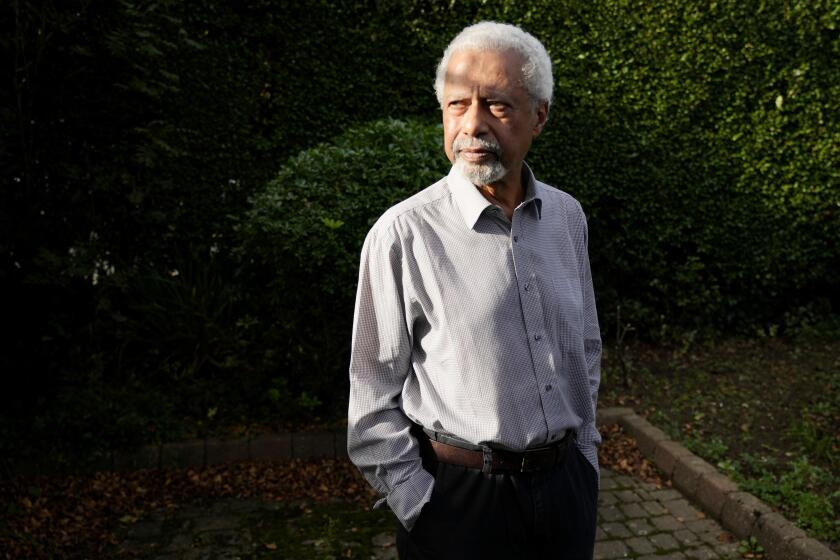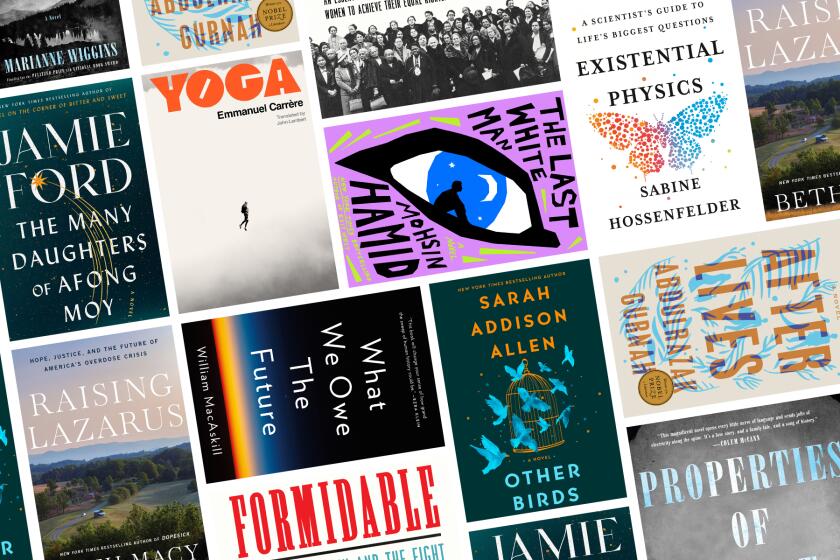Review: Love after atrocity: A Nobel winnerâs new novel crystallizes the pain of colonialism
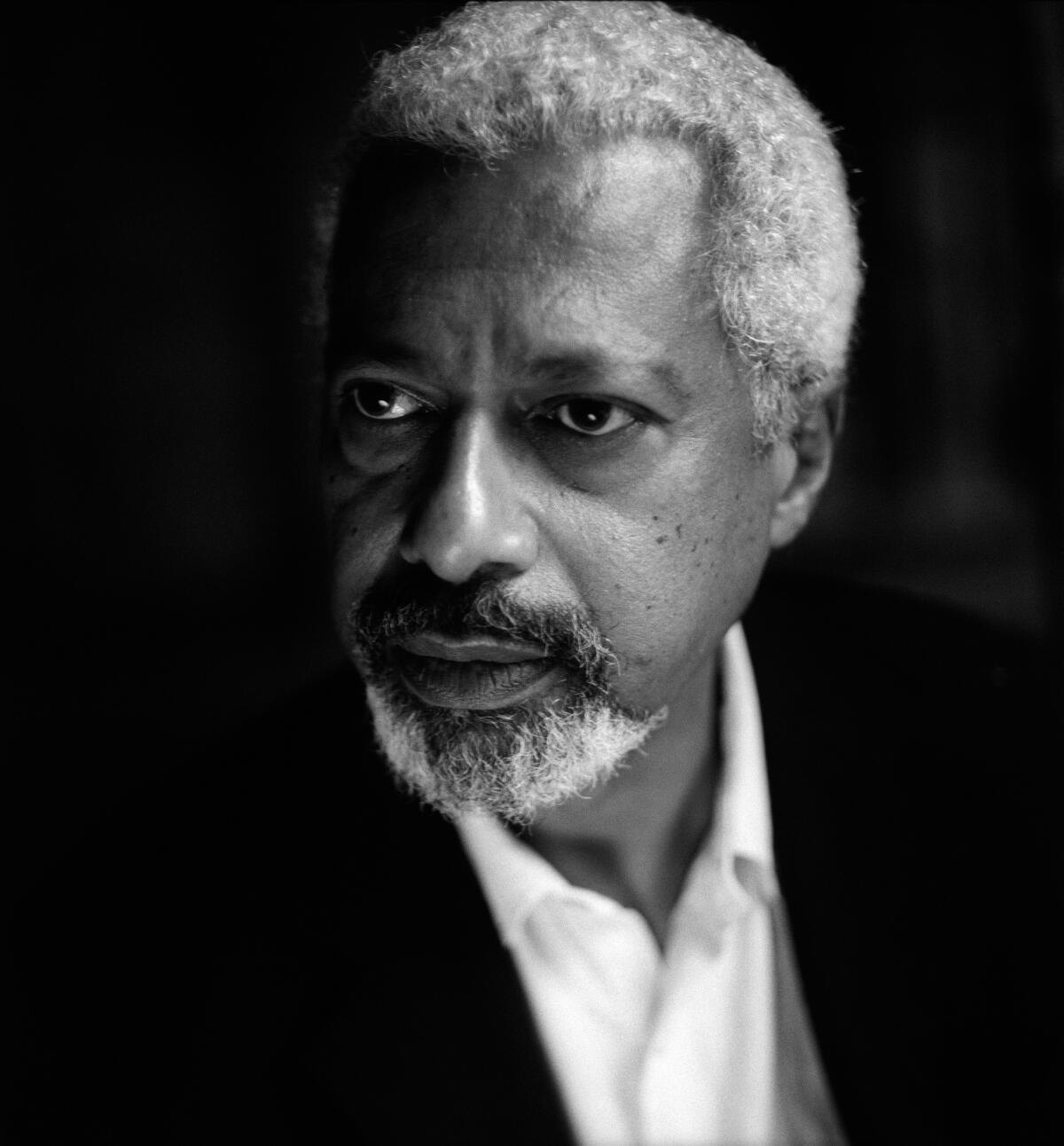
On the Shelf
Afterlives
By Abdulrazak Gurnah
Riverhead: 320 pages, $28
If you buy books linked on our site, The Times may earn a commission from Bookshop.org, whose fees support independent bookstores.
We read books in translation, in part, to learn about other cultures. The best of them take us beyond literary tourism and into the history that shaped those cultures â the good, bad and ugly. Often itâs the shame and wreckage left behind by colonialism, as in Nobel laureate Abdulrazak Gurnahâs new novel âAfterlives,â in which the horrors of Germanyâs imperial takeover of vast swaths of Africa resulted in the first genocide of the 20th century.
Gurnah, born on Tanzaniaâs province of Zanzibar, fled political unrest for the United Kingdom in 1964 as a teenager. He began writing in English, rather than his first language of Swahili, adding a layer in his careerlong drive to reveal the hybridity inherent in migration â which Gurnah believes is fundamental to the modern world. While his books may center on particular African communities and events, what has earned him the highest of accolades is his attention to universality.
âAfterlivesâ covers decades in the lives of its three main characters, Khalifa, Afiya and Ilyas. They each experience various kinds of deprivation, salvation and injustice in the aftermath of colonialist brutality. The novel also hews close to some of the German occupiers. It would be easy to make them caricatures, a mass of Colonel Klink-like goose-steppers; the material is all there, from their calling Tanganyika âDeutsch Ost-Afrikaâ to their schools and âcrenellated fortresses.â
Much of the world may consider him obscure, but to generations of writers with African roots, Abdulrazak Gurnah is both an influence and a role model.
But Gurnah not only holds himself back from lampooning the Germans â he also makes sure we see how desirable their station could seem to the young men who made up their Schutztruppe, African troops who fought against their own countrymen. In Namibia, the 1904 German-driven genocide against the Hereros, Namas and Sans leaves the ground beneath everyoneâs feet politically and morally broken and literally filled with blood and bones. Across the continent in what was then Tanganyika, the atrocities are nearly as dire â and equally debilitating.
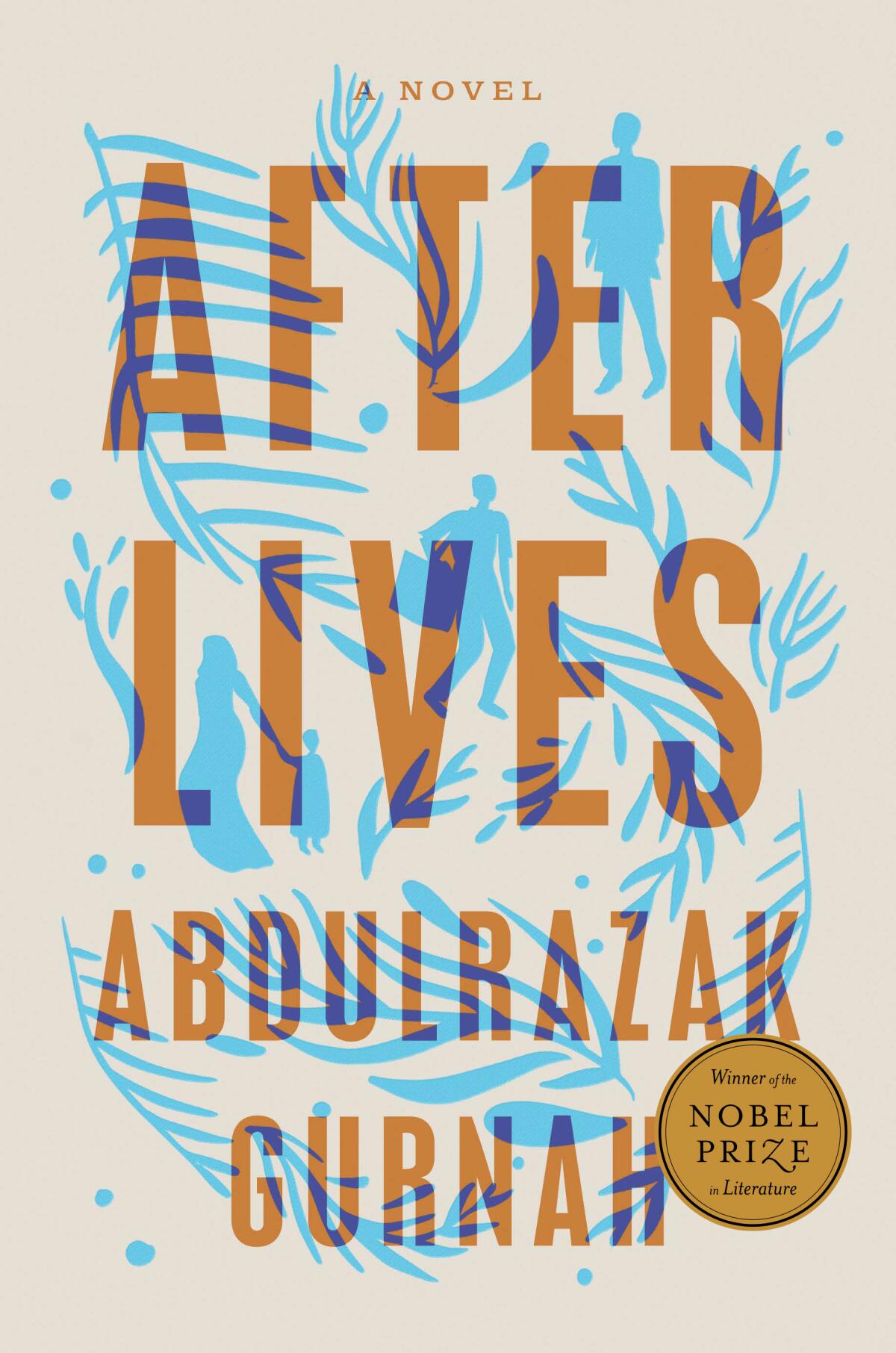
How, then, are the kind merchant Khalifa, his childhood friend Ilyas and Ilyasâ baby sister Afiya ever to walk with strength and confidence? Khalifa, who immigrates to Mombasa, Kenya, promises Ilyas he will care for Afiya. And he does, although by the time she manages to escape her village servitude after a savage beating, sheâs already worn down â and the perfect victim for Khalifaâs pious Muslim wife. Gurnah, the son of a Yemeni immigrant to Tanzania, doesnât suffer zealots of any creed gladly.
Ilyas, meanwhile, is off to war, conscripted into the Schutztruppe to fight the British in World War I. He learns to appreciate Goethe and Schiller, even as his commanders lay waste to his country and culture. The bookâs Oberleutnant sexually abuses a fellow African conscript, Hamza â a man we come very quickly to learn we havenât seen the last of.
Back in Kenya, Khalifa and Afiya long for the presence of Ilyas, who is absent from their lives but remains a hovering presence. He is Chekhovâs gun as character: We know from Gurnahâs bread crumbs that Ilyas will matter to Hamza. But how? Anyone familiar with Gurnahâs work knows that he bides his time, withholding the meaning of a moment because his often-displaced characters donât know how to express it â or canât. âAfterlivesâ follows its long arc to a point where reclamation is possible, where recognition of full personhood can once again be restored.
The Nobel Prize has lifted up a deserving chronicler of postcolonial displacement. Hereâs a guide to getting started on his work.
The second half of the novel describes how a battle-weary Hamza comes to meet and marry Afiya; thatâs not a spoiler. The delicate evolution of their relationship provides a measure of hope and tenderness â but perhaps even more important, a path to that reclamation of full humanity. Once they are able, Hamza and Afiya begin a search for her brother, a search that might seem agonizing to a reader accustomed to strong Wi-Fi and instant screen chat.
Years pass between sending a letter and receiving a response; then World War II interrupts family life. Hamza and Afiyaâs son, also named Ilyas, enlists under the new British Tanzanian administration. Not until the younger Ilyas is in middle age and has moved to Germany for a career in broadcasting does he finally learn about the rest of his uncleâs life.
In less than 20 pages, Gurnah brings all these afterlives to a closure simultaneously ripe with meaning and rotten with evil. Ilyas Hassan changed his name to Elias Essen and made a life in Berlin. As his nephew reads the details of Eliasâ adulthood, the full scope of Germanyâs 20th century horrors rises from the page like the stench in the African killing fields. An archivist says to the nephew, advising him about travel expenses: âOur bureaucracy is very thorough about funds ... oh, about everything. German bureaucracy is the envy of the world.â And, directing him to a particular city: âIt was a lovely town but I have not been there since the war.â
Bethanne Patrickâs August highlights include fiction from Mohsin Hamid and Marianne Wiggins, a sequel to âDopesickâ and a revisionist feminist history.
Even after two genocides and two global conflicts, some people still wear blinders obscuring their own history. Gurnah, on the other hand, sees in all directions at once. He constructs his latest magnificent novel so clearly and carefully that when his very last lines bring us back to love and kindness, weâre ready to pay attention. Itâs too late for Elias, but perhaps not for Ilyas. Or the rest of us.
Patrick is a freelance critic who tweets @TheBookMaven.
More to Read
Sign up for our Book Club newsletter
Get the latest news, events and more from the Los Angeles Times Book Club, and help us get L.A. reading and talking.
You may occasionally receive promotional content from the Los Angeles Times.
